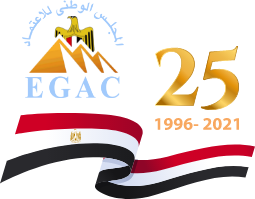Biobanking is integral to many different scientific scopes, and applications for biobanking are becoming more widespread. It’s important that the Reliability of materials and their associated data underpin confidence in their many uses. Banked materials and associated data may be provided as single samples to a single user for a specific purpose or as the larger number of samples for scientific studies e.g. research in diseases connected with a certain analyte in the blood.
Some of the Specific of biobanks are that data associated with a sample may include measurement data as well as other characteristics and demographic information associated with the origin of the material. Whether organizations utilizing banked samples have biobanks in-house or use banked resources from outside facilities, they must be certain that samples are properly handled, consistent, traceable, and appropriate for the intended use. Older several standards that cover aspects of biobanking in some way, such as ISO 15189 Medical laboratories – Requirements for quality and competence, ISO/IEC 17025 This third-party accreditation offers an independent review of an organization’s compliance to ISO 20387 – Technical and Quality Requirements for the operation of various types of biobanks/biorepositories for the desired scope of accreditation.
Many crucial aspects of maintaining a biobank had not been directly addressed until the publication of ISO 20387 – General requirements for biobanking in 2018. ISO 20387 was developed with the entire range of biobanking functions in mind, covering the banking of biological materials from multicellular organisms, e.g.:
- Human samples
- Animal samples
- Fungal samples
- Plant samples
- Microorganisms
The standard includes requirements regarding the preparation and long-term preservation of samples and long-term sample traceability. The standard addresses considerations for biobank-specific collection and transportation procedures and, as with other ISO standards; ISO 20387 covers both the management system and technical aspects of operation providing a multi-faceted framework.
EGAC accreditation of a biobank to ISO 20387 involves independent, unbiased assessment of the biobanking facility to determine competence, impartiality, and consistent operation. Specialist assessors with relevant experience in biobanking conduct an assessment of the biobank, its management system, processes, facilities, personnel, and other essential elements of its operation to determine if it meets the requirements listed in the standard. Based on information and reports provided by all of assessment teams. Also, a separate decision-making process under the accreditation body determines whether to grant accreditation. Once a biobank granting accreditation, they are periodically re-evaluated by two assessment visits to ensure that the biobank is maintaining the necessary competencies and continue to meet the relevant requirements.
This new accreditation program will incorporate a review of the activities performed by biobanks to ensure proper collection/ possession of material, authentication of the material, data management, distribution, the appropriate preservation, testing, and storage of the material.
EGAC accreditation program aims to be effective, efficient, and transparent in delivering our services. We are impartial in decision making and regularly monitor our performance, always looking for ways to improve. We treat every Biobank we deal with fairly and with courtesy and respect. We protect privacy and confidentiality every step of the way.
We develop the assessment approach and offer accreditation to Biobanking Conformity Assessment Bodies (CAB) operating biobanks in the areas of defined biological materials from human, animal, plant, and microorganisms as well as related information and data. We are excited to be able to offer our ISO 20387 accreditation program to support these biobanking facilities. EGAC will work together with these biobanks to ensure the right people and processes are in place to provide quality biological material being used to drive research.
EGAC is developing a biobanking accreditation program based on ISO 20387: 2018 Biotechnology — Biobanking — General requirements for biobanking and ISO/TR 22758:2020 the complementary guidance will help organizations better understands how to implement the standard and fully appreciate its benefits. Together, the two documents help to improve the quality of biological material and data collections that are stored and shared, enhance the outcomes of collaboration, strengthen trust between partners, and advance research and development.
Accreditation requirements according to the international standard ISO 20387: 2018:
(1) objectives, goals, and organizational structure of the Biobank, including procedures for governance, confidentiality, and impartiality policies.
(2) standard operating procedures (SOPs) of all activities performed, including acquisition, analysis, collection, data management, distribution, preparation, preservation, testing facility and equipment maintenance, calibration, and monitoring.
(3) procedures for control of documents and records, the identification of risks and opportunities, improvements, corrective actions, nonconforming records and evaluation of external providers.
(4) an internal audit and management reviews, verification of QMS performance, monitoring of quality objectives and personnel qualification and competency in carrying out specific Biobanking tasks.
The key differences between the two standards ISO 15189 and ISO 20387 lie in the handling and intended purpose of the samples. Biobanks are intended to keep samples for significantly longer than a typical medical lab, so ISO 20387 addresses the preparation and long-term preservation of material, requirements for long-term sample traceability, and includes more specifics about the life cycle of samples and how they are stored. Because it includes provisions for human and non-human samples, it has more detailed requirements for the acquisition or collection and documentation procedures for all materials and requires that the intended use of samples be documented. Also, ISO 20387 differs in how it provides for the transport or transfer of banked materials.
Note 1: For entities handling human materials procured and used for diagnostic and treatment purposes ISO 15189 and other clinical standards are intended to apply first and foremost.
Note 2: this ISO 20387 does not apply to biological material intended for food/feed production, laboratories undertaking analysis for food/feed production, and/or therapeutic use.

